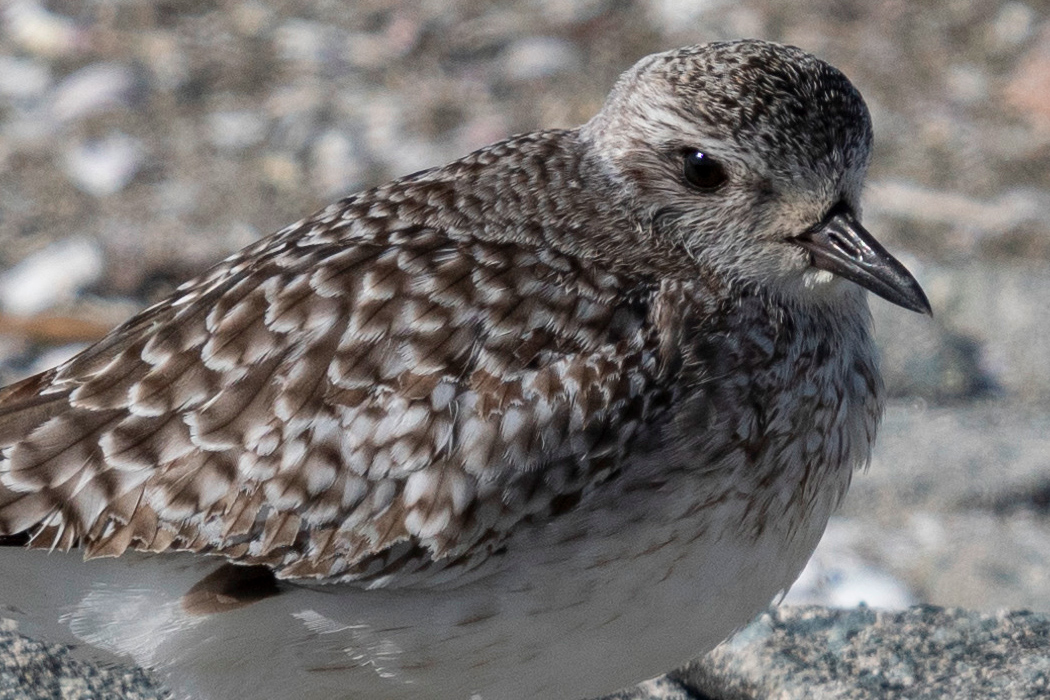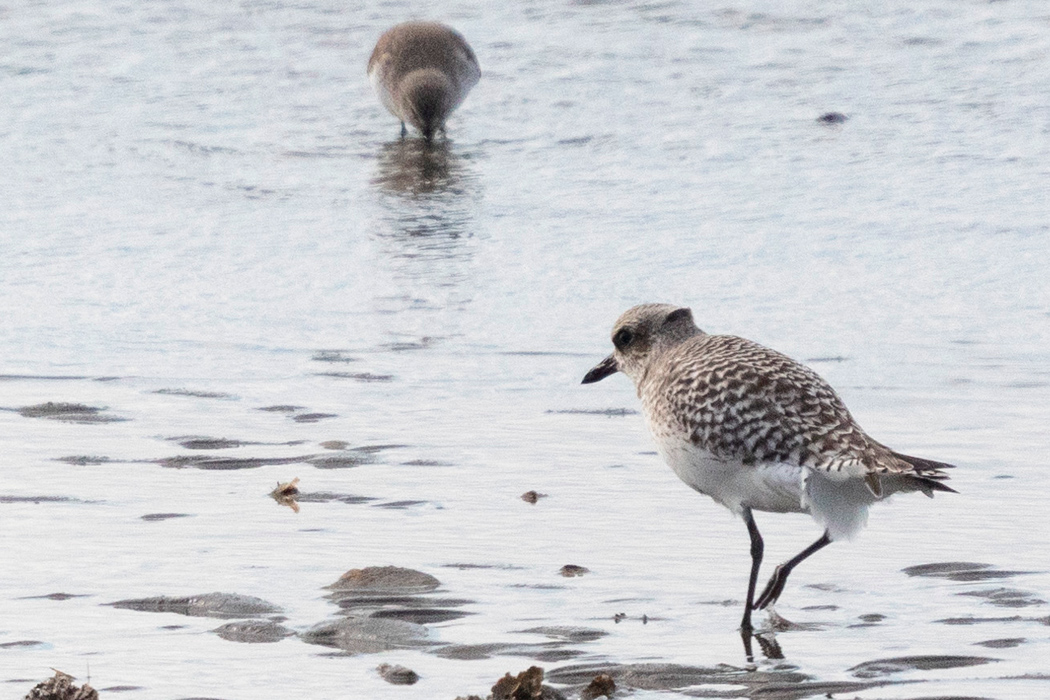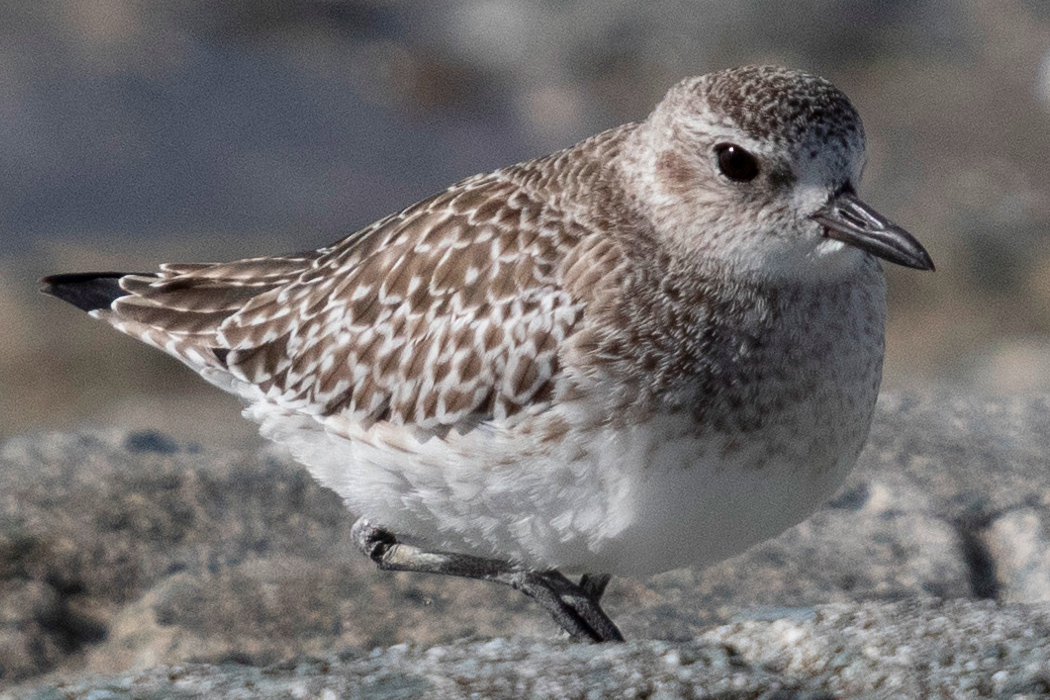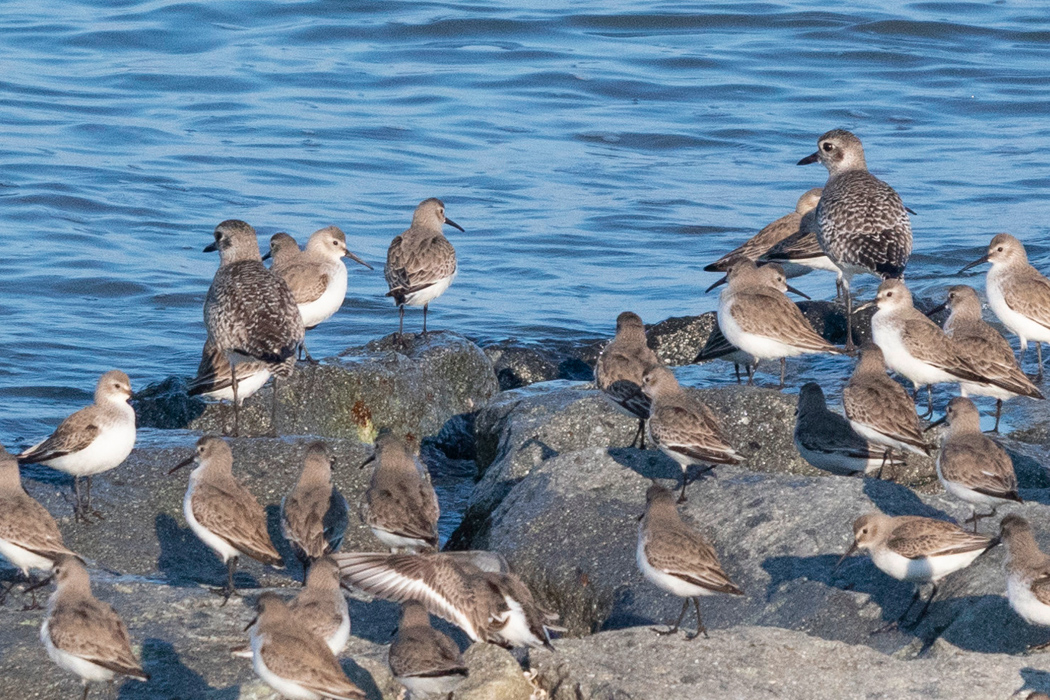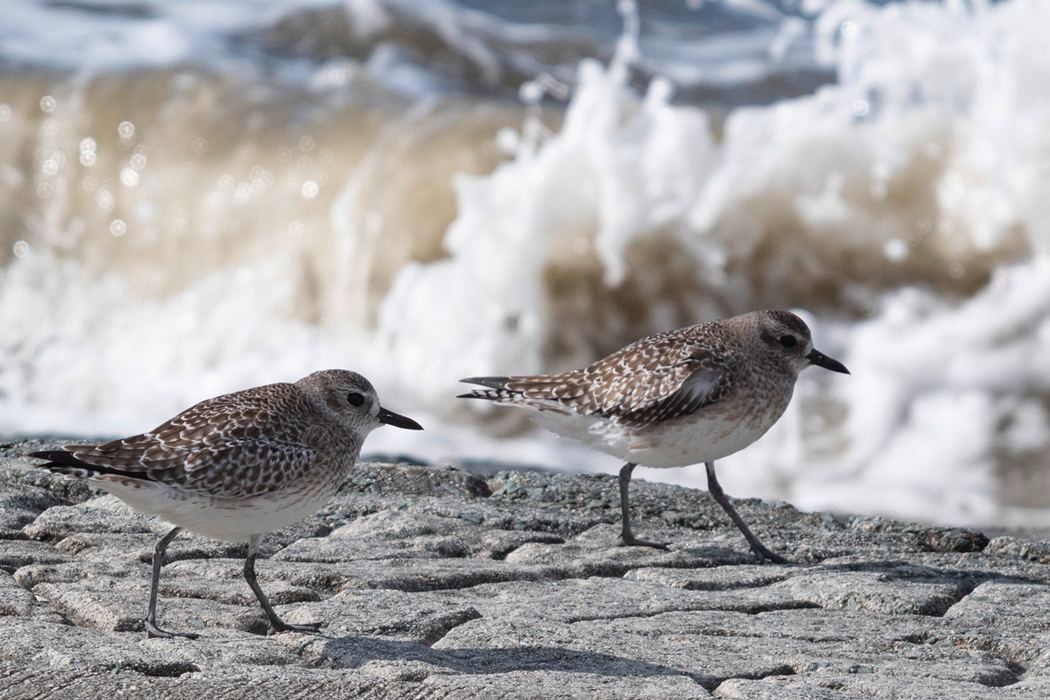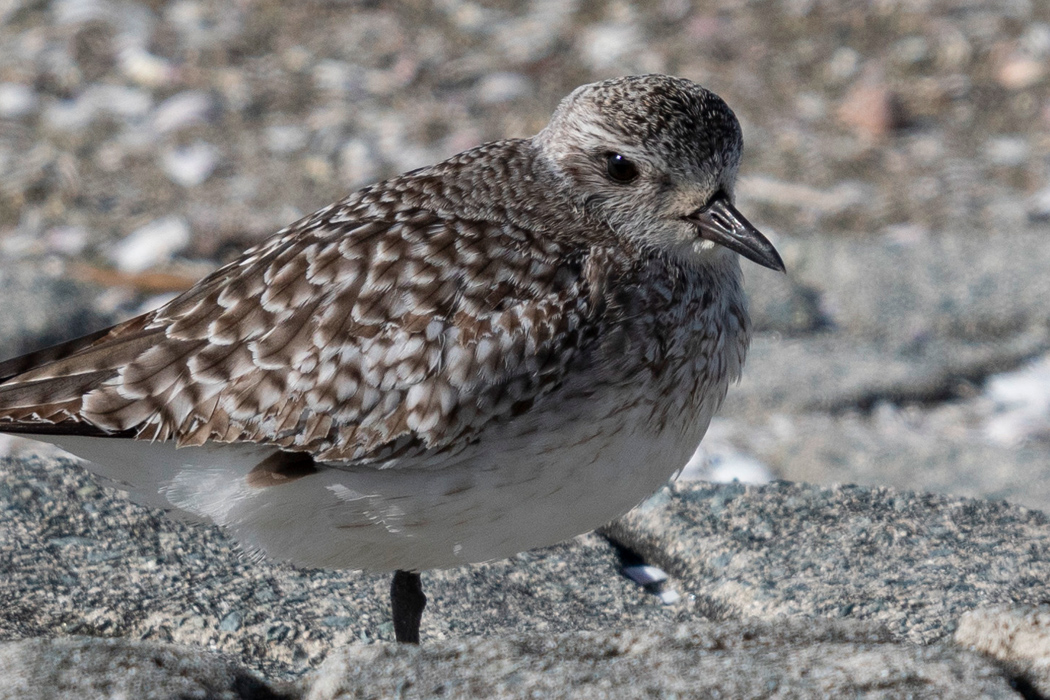
Grey Plover
Natsuha's belly is black.
| Scientific name | Pluvialis squatarola |
| English name | Grey Plover |
| Japanese name | 大膳 |
| Classification | Aves |
| Classification details | Charadriiformes Charadriidae |
| Full length | 29cm |
| Distribution | Distributed around the world. Came to Japan during migration. |
Characteristics
A migratory bird of the plover family that is characterized by the black belly of its summer plumage. The back of the body is gray with white markings, and has a faint brownish tint, making it well suited to the coast. The legs are black and the base is white even in summer. In winter plumage, the blackness of the belly disappears completely, and the overall color becomes a plain grayish brown.
It is slightly larger than other plovers.
The difference between Daizen and Munagro
Daizen and Munagro are very similar in appearance. Before distinguishing them by appearance, it would be helpful to think about where and when each bird can be seen. Daizen is a winter bird that migrates to tidal flats and estuaries. On the other hand, the red plover can be seen not only on the coast but also in farmlands, and is often seen during the migration seasons of spring and autumn.
As for the difference in appearance, Daizen's waist is white, and Pupae's is brownish. In addition, although it is a small point, there is also a difference that Daizen has hind fingers on its ankles, and Munaguro does not.
Calls
Daizen's cry is a high-pitched "peep" sound typical of plovers, and its extended voice sounds like a rising tail.
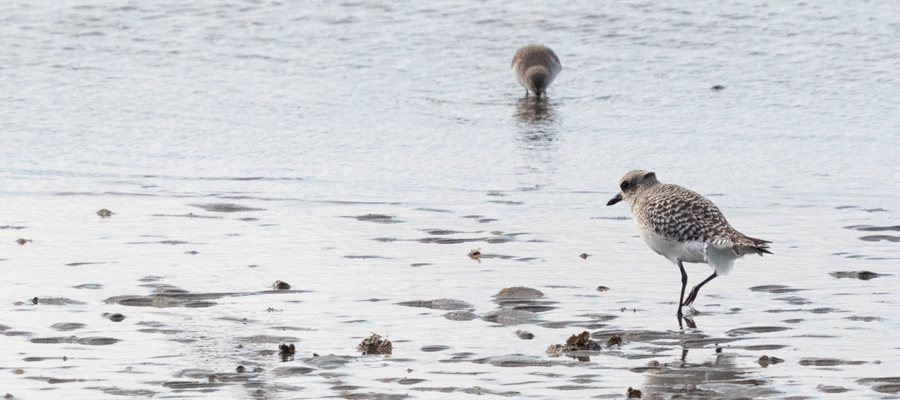
Ecology
It is mainly found near the sea, such as tidal flats and estuaries. It is omnivorous and eats anything, including lugworms, shellfish, and insects. It breeds along the Arctic coast and visits Japan as a migratory bird during migration.
Habitat
Taken at Arao Tidal Flat in Kumamoto Prefecture. It was resting on the beach during the post-high tide hours. It was mixed with the white plover and the yellow-tailed sandpiper, but it stood out because it was a little big. There were only a few of them, and I felt they were a little less cautious than the white plover. When the tide began to recede, we went out to the tidal flats and began to scavenge for food.
Pictures
Introducing a picture of Grey Plover.

Picture book

---
A brown frog that lives in the forest.......ead more.

---
The blue-purple gradation is beautiful.......ead more.
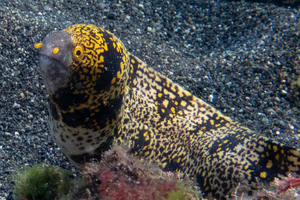
Starry moray
A protruding yellow nasal tube.......ead more.

Masked laughing thrush
An alien species with square and black eyes.......ead more.
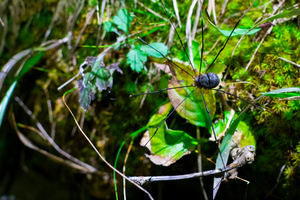
Nelima genufusca
Has wire-like legs and is nicknamed "Uncle Long Legs" in the United States.......ead more.
